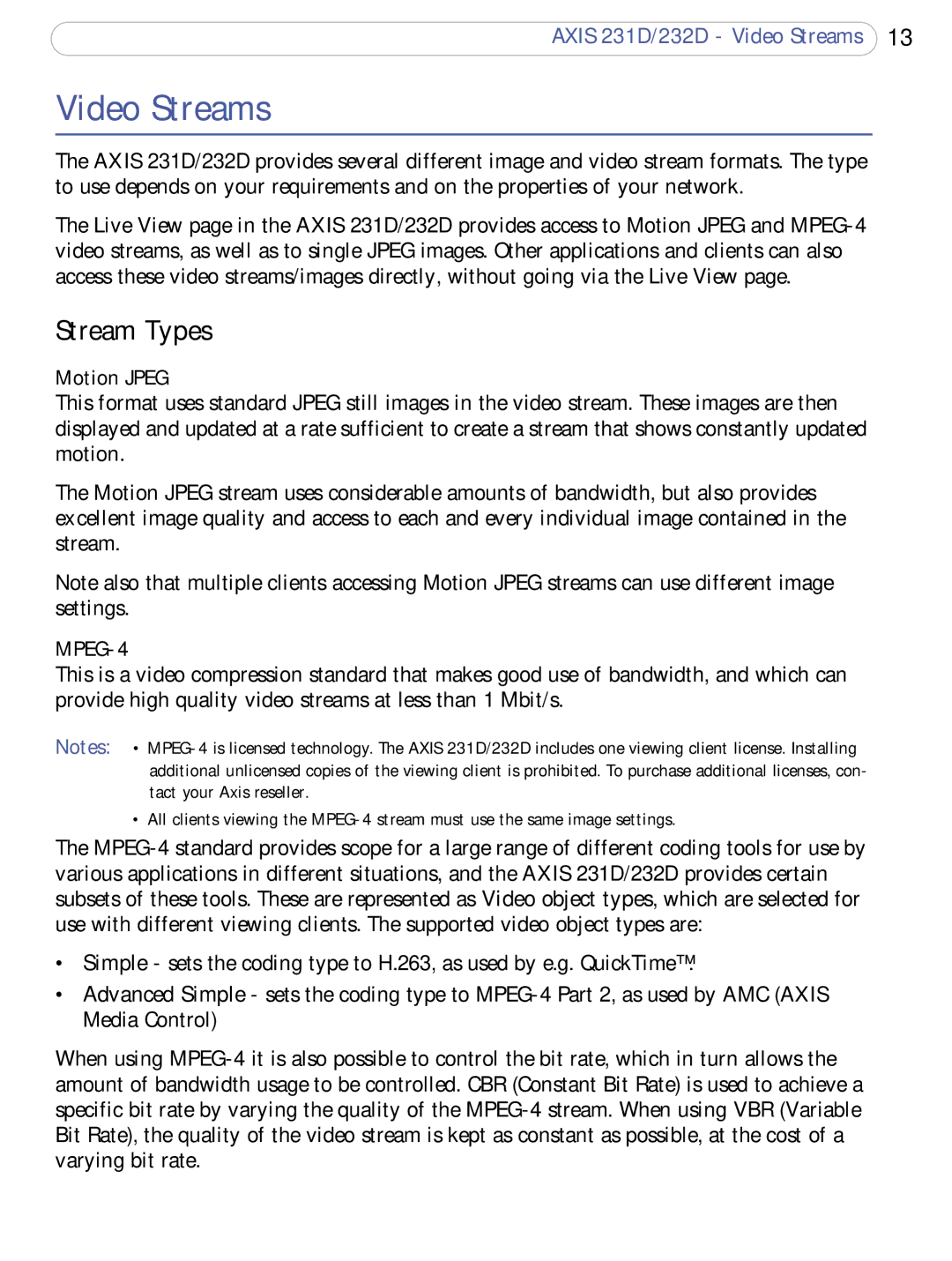AXIS 231D/232D - Video Streams 13
Video Streams
The AXIS 231D/232D provides several different image and video stream formats. The type to use depends on your requirements and on the properties of your network.
The Live View page in the AXIS 231D/232D provides access to Motion JPEG and MPEG-4 video streams, as well as to single JPEG images. Other applications and clients can also access these video streams/images directly, without going via the Live View page.
Stream Types
Motion JPEG
This format uses standard JPEG still images in the video stream. These images are then displayed and updated at a rate sufficient to create a stream that shows constantly updated motion.
The Motion JPEG stream uses considerable amounts of bandwidth, but also provides excellent image quality and access to each and every individual image contained in the stream.
Note also that multiple clients accessing Motion JPEG streams can use different image settings.
MPEG-4
This is a video compression standard that makes good use of bandwidth, and which can provide high quality video streams at less than 1 Mbit/s.
Notes: • MPEG-4 is licensed technology. The AXIS 231D/232D includes one viewing client license. Installing additional unlicensed copies of the viewing client is prohibited. To purchase additional licenses, con- tact your Axis reseller.
• All clients viewing the MPEG-4 stream must use the same image settings.
The MPEG-4 standard provides scope for a large range of different coding tools for use by various applications in different situations, and the AXIS 231D/232D provides certain subsets of these tools. These are represented as Video object types, which are selected for use with different viewing clients. The supported video object types are:
•Simple - sets the coding type to H.263, as used by e.g. QuickTime™.
•Advanced Simple - sets the coding type to MPEG-4 Part 2, as used by AMC (AXIS Media Control)
When using MPEG-4 it is also possible to control the bit rate, which in turn allows the amount of bandwidth usage to be controlled. CBR (Constant Bit Rate) is used to achieve a specific bit rate by varying the quality of the MPEG-4 stream. When using VBR (Variable Bit Rate), the quality of the video stream is kept as constant as possible, at the cost of a varying bit rate.

